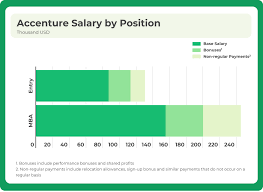
This article will help you to find out how to replace financial advisors. There are a few things you should remember whether you decide to switch firms. First, always be on your financial advisor's good side. You might need his support in the near future. Also, be sure to get his transaction records. This will enable your new financial adviser to be up to date.
Transferring non-transferable assets
Certain clients may have the option of moving non-transferable assets to new financial advisors. It can help minimize tax consequences. Non-transferable asset are not available to the previous advisor. This allows your new advisor to decide what to sell and when. This allows you to adjust your profits or losses as you wish.
You will need to review any contracts you have with previous advisors before you begin the process of switching financial advisers. Check your contract carefully to make sure there are no restrictions in moving your assets to the new advisor. Some contracts require you to give a certain amount notice or pay termination fee.

Avoid unpleasant surprises
You need to be sure that the right advisor is chosen for you. As a responsible investor, you want to make sure your advisor helps you reach your financial goals. While it is not always easy to make a decision, there are some ways to avoid making a mistake. The first step is to find out how much your advisor values their work and how you can hold them to a high standard.
When changing financial advisors, read the contract carefully and ask about any fees that you might need to pay. Ask about fees and the minimum period of holding for non-transferable asset assets. Ask about fees like redemption fees or if the old advisor will charge a fee for the transfer. Although it can be difficult to switch financial advisors, it is better than working for someone who isn't right for you for a long time.
Costs associated with switching financial advisors
While switching to financial advisors is an effective way to save money, it can also come with a cost. The time and effort that goes into transitioning client accounts or developing new client relationships will be costly. While this cost is difficult to quantify, it generally equates to about 5 percent of your annual productivity. In other words, an opportunity cost of $50,000 is associated with managing a million-dollar company.
It is not an easy task to move your financial accounts. You need to not only find a new advisor but also discuss your preferences and needs with them. It is better if your new advisor is familiar with you in order to make accurate recommendations. Your top financial goals should be clearly communicated. Once you've identified your new financial advisor, evaluate the costs involved in transferring your account(s). Ask your current financial advisor about the fees for transferring your account. Also, make sure you review your agreements. Many times, agreements can be signed electronically by you and your new advisor.

Finding the "forever" love of your life
To make the transition smoothest possible when you are changing financial advisors there are several things to consider. Financial advisors are often able to establish long-lasting relationships. They might have helped you to start personal finance, set up retirement savings accounts, or even signed you up with life insurance. These relationships can be valuable for your financial wellbeing in any situation.
It is important to review your financial records with your new advisor. Check out the credentials and experience of the advisor. You also need to ensure that they are qualified to manage your assets. It is important to check that your advisor has a license to handle your accounts. There are some advisors who are not allowed to have certain assets. Make sure you have a copy of your transaction history before you transfer any assets.
FAQ
How much does it take to hire a consultant
There are many factors that go into the cost of hiring a consultant. These factors include:
-
Project size
-
Time frame
-
Scope and nature of work
-
Fees
-
Deliverables
-
Other considerations like experience level, geographical location, etc.
How do I choose a consultant?
Three main factors should be considered:
-
Experience - How skilled is the consultant? Is she a beginner, intermediate, advanced, expert, or something else? Does her resume show that she has the necessary skills and knowledge?
-
Education - What did this person learn during school? Did he/she study any relevant courses after graduating from high school? Can we see evidence of that learning in the way s/he writes?
-
Personality - How do we feel about this person? Would you want this person to work for you?
-
These questions are used to determine if the candidate is right for us. If you don't have clear answers, it may be worth meeting with the candidate for an interview.
Do I need a degree to be a consultant?
The best way to become an expert on any subject is by studying the subject thoroughly and then practicing what you have learned.
So if you want to learn how to become a great consultant, start studying now!
You may not be able to get hired if you don't have relevant experience but a degree. You could still apply if you are able to show that you have the same subject knowledge as the people who were hired.
Employers will always seek out candidates who have real-world experience.
Who hires consultants
Many companies hire consultants to help with their projects. These consultants can be found in small and large businesses as well as government agencies, universities, educational institutions, non-profits, and education institutions.
Some consultants work directly for these organisations, while others freelance. The hiring process will vary depending on the complexity and size of the project.
Many rounds of interviews are required when hiring consultants. Then, the final decision will be made about who you believe is best for the job.
Which industries use consultants?
There are many types. Many consultants specialize in a particular type of business. Others may be more focused on multiple types.
Some consultants are limited to working for private corporations, while others can represent large corporations.
Some consultants are available to help businesses around the world.
Are you a consultant?
Consulting is more than a job that allows you to quickly make money.
Consulting can offer many career opportunities, such as project management and business development. Projects could include small start-ups or large international corporations.
Consulting offers you the chance to improve and sharpen your skills as well as gain valuable experience across a range industries. This could involve learning to manage and negotiate teams, write proposals or manage budgets.
How can I start an LLC consulting company?
The first step is to decide what service provider you want to be. Then you need to make sure you are qualified for those services. It may be a good idea to seek out someone who offers the services you need and observe their work.
Once you know your product/service, you should start looking for the right market. If there aren't enough of them, you may need to create them.
You must then decide whether you want your business to be run by you or hired others.
A license from the state could be required to start your own consulting business. However, this can take some time and require legal fees.
Statistics
- On average, your program increases the sales team's performance by 33%. (consultingsuccess.com)
- My 10 years of experience and 6-step program have helped over 20 clients boost their sales by an average of 33% in 6 months. (consultingsuccess.com)
- According to statistics from the ONS, the UK has around 300,000 consultants, of which around 63,000 professionals work as management consultants. (consultancy.uk)
- So, if you help your clients increase their sales by 33%, then use a word like “revolution” instead of “increase.” (consultingsuccess.com)
- 67% of consultants start their consulting businesses after quitting their jobs, while 33% start while they're still at their jobs. (consultingsuccess.com)
External Links
How To
What is a typical day for a consultant?
Your work type will determine the length of your day. You'll spend your time researching new ideas and meeting clients.
Clients will often meet with you to discuss their problems. These meetings can take place over the phone, via email, online, or face to face.
You may also be asked to prepare proposals, which are documents outlining your ideas and plans for clients. Before presenting these proposals to clients, you will usually need to discuss them with a colleague or mentor.
After all the preparation, you'll need to start creating content. You might be creating articles, videos, editing photos, writing interviews, or designing websites.
Depending on the scope of the project, you may need to do some research in order to gather relevant statistics or figures. You might need to determine how many customers you have, and whether they buy more than one product.
After gathering enough information, you can present your findings to clients. You may give your findings orally or in written form.
After your initial consultation, you should follow up with your clients. For example, you might call them periodically to see how things are going or send emails asking them to confirm that they received your proposal.
This is a long process that can take some time. However, it is crucial to stay focused and to maintain good relationships.